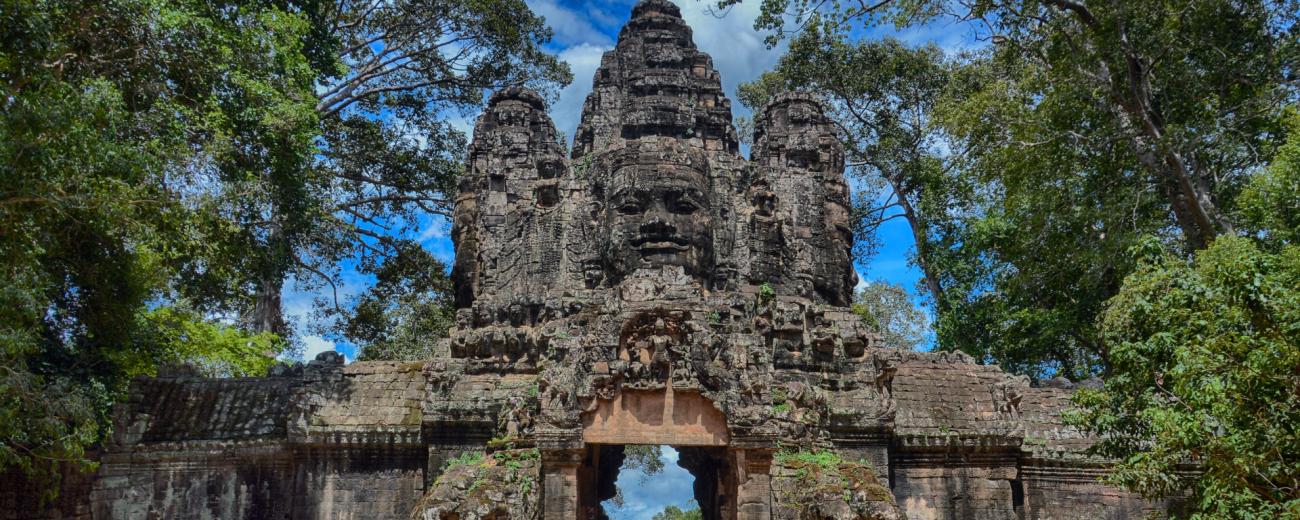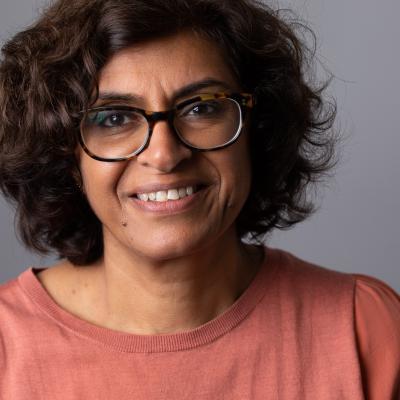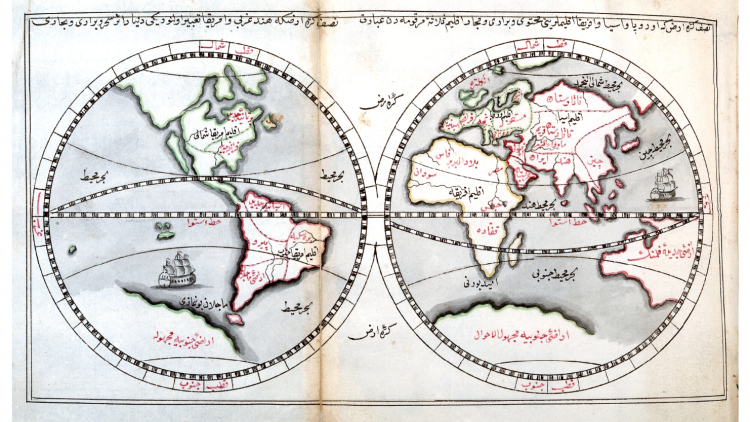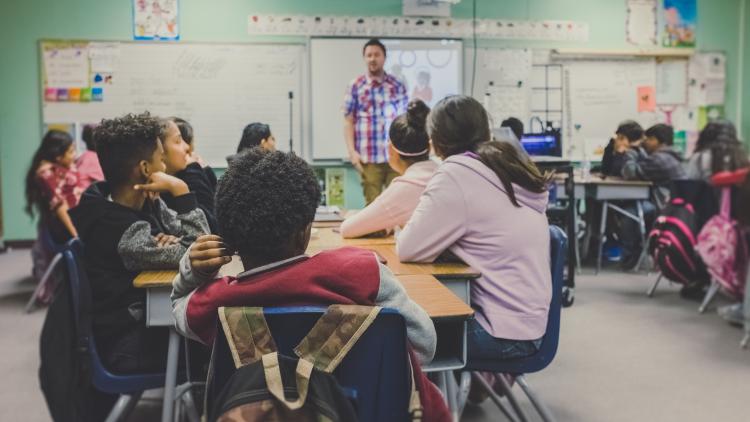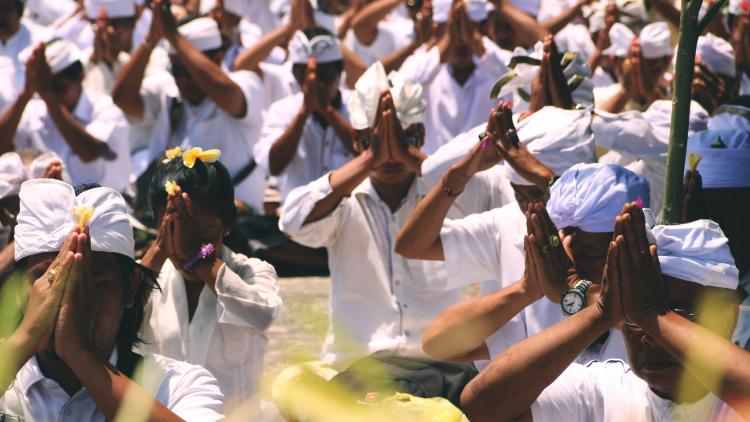Entry requirements
Afghanistan: Qualifications (Bachelor equivalency): Master's degree from a recognised institution
Equivalent to 2:ii: 70% or 3.0
Albania: Qualifications (Bachelor equivalency): First Level Diploma (Diploma e nivelit te para) (3 Years) from a recognised institution
Equivalent to 2:ii: 7/10
Algeria: Qualifications (Bachelor equivalency): Licence; Diplome de [subject area]; Diplome d'Etudes Superieures; Diplome de Docteur end Pharmacie; or Diplome de Docteur en Medecine from a recognised institution
Equivalent to 2:ii: 12/20
Antigua and Barbuda: Qualifications (Bachelor equivalency): Bachelor's degree from the University of the West Indies
Equivalent to 2:ii: 2.7/4, B-, 60% or Lower Second Class Hons
Argentina: Qualifications (Bachelor equivalency): Titulo/ Grado de Licenciado/ Titulo de [subject area] (minimum 4 years) from a recognised institution
Equivalent to 2:ii: 6/10 or Bueno
Information for prospective students from Argentina
Australia: Qualifications (Bachelor equivalency): Bachelor's degree from a recognised institution
Equivalent to 2:ii: 2:2 / Credit / 60%
Information for prospective students from Australia
Austria: Qualifications (Bachelor equivalency): Bachelor's degree from a recognised institution
Equivalent to 2:ii: 3.5/5.0 and overall Pass (Bestanden)
Azerbaijan: Qualifications (Bachelor equivalency): Bachelor's degree (Bakalavr Diplomu) from recognised institution
Equivalent to 2:ii: 70% or 3.5
Bahamas: Qualifications (Bachelor equivalency): Bachelor's degree from the University of the West Indies
Equivalent to 2:ii: 2.7/4, B-, 60% or Lower Second Class Hons
Bahrain: Qualifications (Bachelor equivalency): Bachelor's degree from a recognised institution
Equivalent to 2:ii: 74% or 2.67
Information for prospective students from Bahrain
Bangladesh: Qualifications (Bachelor equivalency): Master's degree from a recognised institution OR 4 Year Bachelor's degree from SELECTED institutions
Equivalent to 2:ii: Masters: 55% or 2.7. Bachelor: 60% or 3.0
Information for prospective students from Bangladesh
Belgium: Qualifications (Bachelor equivalency): Licentiaat (Flanders) or Licencié (Wallonia). Post 2005 Bachelor/Bachelier 180 ECT degree from a recognised institution
Equivalent to 2:ii: 60% or 12/20 (Flanders); or 65% (Wallonia). Bachelor: 60% or 12/20
Information for prospective students from Belgium
Bolivia: Qualifications (Bachelor equivalency): Licenciado or Título de [subject area] from a recognised institution. Minimum of 4 year
Equivalent to 2:ii: 67%
Information for prospective students from Belgium
Botswana: Qualifications (Bachelor equivalency): Bachelor's degree (minimum 5 years) or Master Degree from the University of Botswana
Equivalent to 2:ii: C / 60% / 2:2
Brazil: Qualifications (Bachelor equivalency): Título de Bacharel / Título de [subject area] / Título de Licenciado/a (4 years) from a recognised institution
Equivalent to 2:ii: 6.5 or 65%
Information for prospective students from Brazil
Brunei: Qualifications (Bachelor equivalency): Bachelor's degree (Honours) from recognised institution
Equivalent to 2:ii: Lower Second Class Hons; 50% / 3.5 out of 5.0
Information for prospective students from Brunei
Bulgaria: Qualifications (Bachelor equivalency): Bachelor's degree from a recognised institution
Equivalent to 2:ii: 4.0/6.0
Information for prospective students from Bulgaria
Burkina Faso: Qualifications (Bachelor equivalency): Diplome d'Etudes Approfondies. Diplome d'Etudes Superieures Specialisees
Equivalent to 2:ii: 13/20
Burma / Myanmar: Qualifications (Bachelor equivalency): Master's degree from a recognised institution
Equivalent to 2:ii: B- or 55% or 3.0/5.0 or 2.5/4.0
Cambodia: Qualifications (Bachelor equivalency): Master's degree from recognised institution
Equivalent to 2:ii: 65% or 2.7/4.0
Cameroon: Qualifications (Bachelor equivalency): Diplôme d'Ingénieur/ Diplôme d'Études Supérieures de Commerce (5 years) from a recognised institution
Equivalent to 2:ii: 12 (assez bien) or 2.5. 70-74/ B+
Canada: Qualifications (Bachelor equivalency): Bachelor's degree from a recognised institution
Equivalent to 2:ii: 2.7 or 67%
Information for prospective students from Canada
Chile: Qualifications (Bachelor equivalency): Grado de Licenciado en [subject area] or Titulo (Professional) de [subject area] (min 4 years) from recognised institution
Equivalent to 2:ii: 5.0/7
China Qualifications (Bachelor equivalency): Bachelor's degree (4 years) 学士学位 from a recognised institution
Equivalent to 2:ii: 70-75% or 2.5-2.9/4.0 (depending on university)
Information for prospective students from China
Colombia: Qualifications (Bachelor equivalency): Licenciado en [subject area] or Titulo de [subject area] (minimum 4 years) from recognised institution
Equivalent to 2:ii: 3.5/5.0
Information for prospective students from Colombia
Croatia: Qualifications (Bachelor equivalency): Baccalaureus / Baccalaurea (Bachelor's degree) from a recognised institution
Equivalent to 2:ii: 3.0/5.0
Cuba: Qualifications (Bachelor equivalency): Titulo de Licenciado/ Arquitecto/ Doctor/ Ingeniero from a recognised institution
Equivalent to 2:ii: 3.5/5.0
Cyprus: Qualifications (Bachelor equivalency): Bachelor's degree from a recognised institution
Equivalent to 2:ii: 6.0/10 or 2.7/4.0
Czech Republic: Qualifications (Bachelor equivalency): Bachelor's degree (180 ECTS) from a recognised institution
Equivalent to 2:ii: 2.0/4.0
Information for prospective students from the Czech Republic
Denmark: Qualifications (Bachelor equivalency): Bachelor's degree from a recognised institution
Equivalent to 2:ii: 5/12 or 6/13
Information for prospective students from the Denmark
Dominica: Qualifications (Bachelor equivalency): Bachelor's degree from the University of the West Indies
Equivalent to 2:ii: 2.7/4, B-, 60% or Lower Second Class Hons
Dominican Republic: Qualifications (Bachelor equivalency): Título de Licenciado/Título de [subject] upon completion of 4-year Licenciatura
Equivalent to 2:ii: 65% or 6.5/10
Ecuador: Qualifications (Bachelor equivalency): Bachelor's degree from recognised university
Equivalent to 2:ii: 70% / 7
Egypt: Qualifications (Bachelor equivalency): Bachelor's degree from recognised university
Equivalent to 2:ii: 65% or 2.7/4.0
Information for prospective students from Egypt
Estonia: Qualifications (Bachelor equivalency): Bakalaurusekraad from a recognised institution; University Specialist's Diploma; Professional Higher Education Diploma
Equivalent to 2:ii: 3.0/5.0 or C
Ethiopia: Qualifications (Bachelor equivalency): Master's degree from recognised public or HERQA-accredited private institution
Equivalent to 2:ii: 2.5/5.0
Fiji: Qualifications (Bachelor equivalency): Bachelor's degree (4 years) from the University of the South Pacific
Equivalent to 2:ii: B/3.0
Finland: Qualifications (Bachelor equivalency): Bachelor/Kandidaatti/Kandidat (180 ECTS credits) from a recognised institution
Equivalent to 2:ii: 2.5/4.0 or 1.4/3.0
France: Qualifications (Bachelor equivalency): Grade de Licence from a recognised institution OR three years of study from a grande école
Equivalent to 2:ii: 11/20
Information for prospective students from France
Gambia: Qualifications (Bachelor equivalency): 2-year Master's degree from recognised university
Equivalent to 2:ii: 2.7/4.3 or 60%
Georgia: Qualifications (Bachelor equivalency): Bachelor's degree (Bakalavris Khariskhi) from a recognised institution
Equivalent to 2:ii: 71%/C/ Good
Germany: Qualifications (Bachelor equivalency): Bachelor's degree (180 ECTS) from a recognised institution
Equivalent to 2:ii: Befriedigend: 2.6-3.5/5.0
Information for prospective students from Germany
Ghana: Qualifications (Bachelor equivalency): Bachelor's degree from a recognised institution
Equivalent to 2:ii: Lower Second Class Hons
Information for prospective students from Ghana
Greece: Qualifications (Bachelor equivalency): Bachelor's degree from a recognised institution
Equivalent to 2:ii: 6/10 (University) or 6.8/10 (Tech Institutes)
Information for prospective students from Greece
Grenada: Qualifications (Bachelor equivalency): Bachelor's degree from the University of the West Indies
Equivalent to 2:ii: 2.7/4, B-, 60% or Lower Second Class Hons
Haiti: Qualifications (Bachelor equivalency): Bachelor's degree from the University of the West Indies
Equivalent to 2:ii: 2.7/4, B-, 60% or Lower Second Class Hons
Hong Kong: Qualifications (Bachelor equivalency): Bachelor's degree from a recognised institution
Equivalent to 2:ii: 2.5/4.0 or Lower Second Class Honours
Information for prospective students from Hong Kong
Hungary: Qualifications (Bachelor equivalency): Bachelor's degree (Alapfokozat) or Diploma (Egyetemi Oklevél) from a recognised institution
Equivalent to 2:ii: 3.5/5.0
Iceland: Qualifications (Bachelor equivalency): Bachelor's degree (Baccalaureus or Bakkalarprof) from a recognised institution
Equivalent to 2:ii: 6.5 out of 10
India: Qualifications (Bachelor equivalency): Bachelor's degree (3 or 4 years) from a recognised institution
Equivalent to 2:ii: Top unis: 55%, or 5.5/10. All other: 60%, or 6.0/10; or 5.0/8.0
Information for prospective students from India
Indonesia: Qualifications (Bachelor equivalency): Bachelor's degree or Sarjana I (S1) from a recognised institution
Equivalent to 2:ii: 2.7/4.0
Iran: Qualifications (Bachelor equivalency): Licence/ Karshenasi (4-year Bachelor) from a recognised institution
Equivalent to 2:ii: 13/20
Iraq: Qualifications (Bachelor equivalency): Bachelor's degree (4-year) from a recognised institution
Equivalent to 2:ii: 65% or Good
Ireland: Qualifications (Bachelor equivalency): Bachelor's degree from a recognised institution
Equivalent to 2:ii: Second Class Honours Grade II
Israel: Qualifications (Bachelor equivalency): Bachelor's degree from a recognised institution
Equivalent to 2:ii: 65%
Information for prospective students from Israel
Italy: Qualifications (Bachelor equivalency): Laurea (180 ECTS) from a recognised institution
Equivalent to 2:ii: 94/110
Information for prospective students from Italy
Jamaica: Qualifications (Bachelor equivalency): Bachelor's degree from the University of the West Indies
Equivalent to 2:ii: 2.7/4, B-, 60% or Lower Second Class Hons
Japan: Qualifications (Bachelor equivalency): 学士 (Bachelor's degree) from a recognised institution
Equivalent to 2:ii: 70-75% / Good/ B or 2.7/ 4.0
Information for prospective students from Japan
Jordan: Qualifications (Bachelor equivalency): Bachelor's degree from recognised institution
Equivalent to 2:ii: 2.5/4.0 or 70%
Information for prospective students from Jordan
Kazakhstan: Qualifications (Bachelor equivalency): Bachelor's (Bakalavr Diplomi) or Specialist Diploma from recognised institution
Equivalent to 2:ii: 2.67/4.0 or 3.5/5.0
Information for prospective students from Kazakhstan
Kenya: Qualifications (Bachelor equivalency): Bachelor's degree from a recognised institution
Equivalent to 2:ii: 2:2 or 50-59% or 2.4/4.0
Information for prospective students from Kenya
Kuwait: Qualifications (Bachelor equivalency): Bachelor's degree from a recognised institution
Equivalent to 2:ii: GPA 2.67/4.0
Information for prospective students from Kuwait
Kyrgyzstan: Qualifications (Bachelor equivalency): Bachelor's degree or specialist diploma (min 4 years) from a recognised institution
Equivalent to 2:ii: 3.5/5.0 or 2.67/4.0
Latvia: Qualifications (Bachelor equivalency): Bakalaura Diploms (Bachelor's) or Profesionālā Bakalaura Diploms (Professional Bachelor's) from a recognised institution
Equivalent to 2:ii: 6/10
Lebanon: Qualifications (Bachelor equivalency): Bachelor's degree / Licence from a recognised institution
Equivalent to 2:ii: 70% or C or 2.7/4.0 or 12/20
Information for prospective students from Lebanon
Liberia: Qualifications (Bachelor equivalency): Master's degree from a recognised institution
Equivalent to 2:ii: 75% or 2.8/4.0
Libya: Qualifications (Bachelor equivalency): Bachelor's degree from selected institution
Equivalent to 2:ii: 65% or 2.8/4.0
Lithuania: Qualifications (Bachelor equivalency): Bachelors/Bakalauro (180 ECTS) from a recognised institution
Equivalent to 2:ii: 7/10
Information for prospective students from Lithuania
Luxembourg: Qualifications (Bachelor equivalency): Bachelor's degree from a recognised institution
Equivalent to 2:ii: 12/20
Macedonia: Qualifications (Bachelor equivalency): Bachelor's degree from a recognised institution
Equivalent to 2:ii: 7/10 or 2:2
Malawi: Qualifications (Bachelor equivalency): Master's degree from a recognised institution
Equivalent to 2:ii: 60% or 2.4/4.0
Malaysia: Qualifications (Bachelor equivalency): Bachelor degree
Equivalent to 2:ii: 3.0/4.0 or B (Class 2 Division 2)
Information for prospective students from Malaysia
Maldives: Qualifications (Bachelor equivalency): Bachelor's degree from the Maldives National University (MNU)
Equivalent to 2:ii: 50%
Malta: Qualifications (Bachelor equivalency): Bachelor degree from a recognised institution
Equivalent to 2:ii: Lower Second Class / 60% / Category IIB
Mexico: Qualifications (Bachelor equivalency): Titulo de Licenciado from a recognised institution
Equivalent to 2:ii: 7.5/10
Information for prospective students from Mexico
Morocco: Qualifications (Bachelor equivalency): Licence/Licence d'Etudes Fondamentales/Licence Professionnelle from a recognised institution
Equivalent to 2:ii: 11/20
Information for prospective students from Morocco
Namibia: Qualifications (Bachelor equivalency): Bachelor's degree from a recognised institution
Equivalent to 2:ii: 60% or 2.5/4.0
Nepal: Qualifications (Bachelor equivalency): Master's degree / Bachelor's (4-year) from select institutions
Equivalent to 2:ii: 55% or 2.4/4.0
Information for prospective students from Nepal
Netherlands: Qualifications (Bachelor equivalency): Bachelor's degree from a recognised institution
Equivalent to 2:ii: 6/10 or 2.7/4.0
Information for prospective students from the Netherlands
New Zealand: Qualifications (Bachelor equivalency): Bachelor's degree (3 or 4 years) from a recognised institution
Equivalent to 2:ii: Lower Second Class Hons
Nigeria: Qualifications (Bachelor equivalency): Bachelor's degree from a recognised institution
Equivalent to 2:ii: Lower Second Class Hons
Information for prospective students from Nigeria
Norway: Qualifications (Bachelor equivalency): Bachelors/Bachelorgrad (180 ECTS) or Candidatus/a magisterii from a recognised institution
Equivalent to 2:ii: Overall C
Information for prospective students from Norway
Oman: Qualifications (Bachelor equivalency): Bachelor's degree from a recognised institution
Equivalent to 2:ii: 2.7/4.0
Information for prospective students from Oman
Pakistan: Qualifications (Bachelor equivalency): Bachelor's degree (4-year) from HEC recognised institution or 2 year BA + 2 year MA from HEC recognised institution
Equivalent to 2:ii: CGPA 2.7 or 55%
Information for prospective students from Pakistan
Palestine: Qualifications (Bachelor equivalency): Bachelor degree (4-year) from a recognised institution
Equivalent to 2:ii: 75% or or 2.7/4.0
Papua New Guinea: Qualifications (Bachelor equivalency): Bachelor's (Honours) degree from a recognised institution
Equivalent to 2:ii: Class II Division B
Peru: Qualifications (Bachelor equivalency): Licenciado or Professional Title from a recognised institution
Equivalent to 2:ii: 12/20
Philippines: Qualifications (Bachelor equivalency): Master’s from recognised institution or Centre of Excellence; or Bachelor's from prestigious institution or Centre of Excellence.
Equivalent to 2:ii: 2.5/4.0 or 80% or 2.5/5.0 or Cum Laude
Poland: Qualifications (Bachelor equivalency): Licencjat or Inżynier from a recognised institution
Equivalent to 2:ii: 3.8/5.0
Information for prospective students from Poland
Portugal: Qualifications (Bachelor equivalency): Licenciado (180 ECTS) from a recognised institution
Equivalent to 2:ii: 12/20
Qatar: Qualifications (Bachelor equivalency): Bachelor's degree from a recognised institution
Equivalent to 2:ii: 2.7/4.0 or 3.3/5.0
Information for prospective students from Qatar
Romania: Qualifications (Bachelor equivalency): Diplomă de Licenţă/Diplomă de Inginer/Diplomă de Urbanist Diplomat from a recognised university
Equivalent to 2:ii: 7/10
Information for prospective students from Romania
Russia: Qualifications (Bachelor equivalency): Diplom Bakalavra or Specialist Diploma from a recognised institution
Equivalent to 2:ii: 3.5/5.0
Information for prospective students from Russia
Rwanda: Qualifications (Bachelor equivalency): Bachelor's degree (4-year) from a recognised institution
Equivalent to 2:ii: Lower Second Class Hons; 60%; or 13/20
Saudi Arabia: Qualifications (Bachelor equivalency): Bachelor's degree from a recognised institution
Equivalent to 2:ii: 3.5/5.0 or 2.7/4.0 or 70%
Information for prospective students from Saudi Arabia
Serbia and Montenegro: Qualifications (Bachelor equivalency): Bachelor's degree from a recognised institution
Equivalent to 2:ii: 7 / Good
Serbia and Montenegro: Qualifications (Bachelor equivalency): Bachelor's Honours degree from a recognised institution
Equivalent to 2:ii: Lower Second Class Hons; 55%; 3.4/5.0; 2.75/4.0
Singapore: Qualifications (Bachelor equivalency): Bachelor's degree from a recognised institution
Equivalent to 2:ii: 3.3/5.0 or 2.8/4.0
Information for prospective students from Singapore
Slovakia: Qualifications (Bachelor equivalency): Bachelor's degree (Bakalár) from a recognised institution
Equivalent to 2:ii: 70%; or 2.0 overall; or C
Slovenia: Qualifications (Bachelor equivalency): Diploma o pridobljeni univerzitetni izobrazbi (University Degree) or Diploma o pridobljeni visoki strokovni izobrazbi / Diplomirani (Diploma of Professional Higher Education) or Diplomant or Univerzitetni diplomant (first degree)
Equivalent to 2:ii: 7 out of 10
Solomon Islands: Qualifications (Bachelor equivalency): Bachelor's degree (4-year) from the University of the South Pacific
Equivalent to 2:ii: B/3.0
Somalia: Qualifications (Bachelor equivalency): Do not accept national qualifications for direct entry
Equivalent to 2:ii: N/A
South Africa: Qualifications (Bachelor equivalency): Bachelor's degree (4-year) from a recognised institution
Equivalent to 2:ii: 60%
Information for prospective students from South Africa
South Korea: Qualifications (Bachelor equivalency): Bachelor's degree from a recognised institution
Equivalent to 2:ii: GPA 2.5/4.0; or 2.8/4.3; or 3.0/4.5
Information for prospective students from South Korea
Spain: Qualifications (Bachelor equivalency): Título de Grado / Título de Licenciado / Título de Ingeniero / Titulo de Arquitecto from a recognised institution
Equivalent to 2:ii: 6/10 or 1.5/4.0
Information for prospective students from Spain
Sri Lanka: Qualifications (Bachelor equivalency): Bachelor Special Degree or Professional Degree (4-year) from a recognised institution
Equivalent to 2:ii: 55% or 2:2 or 3.0/4.0
Information for prospective students from Sri Lanka
St Kitts and Nevis: Qualifications (Bachelor equivalency): Bachelor's degree from the University of the West Indies
Equivalent to 2:ii: 2.7/4, B-, 60% or Lower Second Class Hons
St Vincent and the Grenadines: Qualifications (Bachelor equivalency): Bachelor's degree from the University of the West Indies
Equivalent to 2:ii: 2.7/4, B-, 60% or Lower Second Class Hons
Sudan: Qualifications (Bachelor equivalency): Bachelor's degree (5-year) from a recognised institution
Equivalent to 2:ii: 60% or B
Sweden: Qualifications (Bachelor equivalency): Bachelor's Degree/Kandidatexamen/Yrkesexamen from a recognised institution
Equivalent to 2:ii: Pass OR Godkänd (with a minimum of 90 credits at Good - C)
Information for prospective students from Sweden
Switzerland: Qualifications (Bachelor equivalency): Diplom/Diplôme;Lizentiat;Staatsdiplom/Diplôme d’Etat from a recognised institution
Equivalent to 2:ii: 4/6; or 6/10: or 3/5
Information for prospective students from Switzerland
Syria: Qualifications (Bachelor equivalency): Bachelor's degree (Licence/ al-ijaza-fi) from a recognised institution
Equivalent to 2:ii: 65%+ or 'Good' from a public university
Taiwan: Qualifications (Bachelor equivalency): Bachelor's degree from a recognised institution
Equivalent to 2:ii: 65-70% or GPA 2.6/4.0 - 2.8/4.0
Information for prospective students from Taiwan
Tanzania: Qualifications (Bachelor equivalency): Bachelor's degree from a recognised institution
Equivalent to 2:ii: 2:2; or Lower Second; or GPA 2.7/5.0
Thailand: Qualifications (Bachelor equivalency): Bachelor's degree from a recognised institution
Equivalent to 2:ii: 2.6/4.0
Information for prospective students from Thailand
Trinidad and Tobago: Qualifications (Bachelor equivalency): Bachelor's Degree from UWI
Equivalent to 2:ii: B-, 60% or 2.5; or Lower Second Class Hons
Tunisia: Qualifications (Bachelor equivalency): Diplôme National d'Ingénieur/ Diplôme National d'Architecture/ Docteur en Médecine / Vétérinaire/ Licence/ Maîtrise from recognised institution
Equivalent to 2:ii: 11 out of 20
Turkey: Qualifications (Bachelor equivalency): Lisans Diplomasi from a recognised institution
Equivalent to 2:ii: Top Unis: 2.5/4.0. All others: 2.8/4.0
Information for prospective students from Turkey
Uganda: Qualifications (Bachelor equivalency): Bachelor's degree from a recognised institution
Equivalent to 2:ii: 2:2 (Lower Second) or 3.0/5.0 or B
Information for prospective students from Uganda
Ukraine: Qualifications (Bachelor equivalency): Bachelor's degree or specialist diploma from a recognised institution
Equivalent to 2:ii: 7 out of 12; or 3.5 out of 5
United Arab Emirates: Qualifications (Bachelor equivalency): Bachelor's degree from a recognised institution
Equivalent to 2:ii: GPA 2.6/4.0 or 75% or C+
Information for prospective students from the United Arab Emirates
United States of America: Qualifications (Bachelor equivalency): Bachelor's degree from a recognised institution
Equivalent to 2:ii: GPA 2.7/4.0
Information for prospective students from the USA
Vietnam: Qualifications (Bachelor equivalency): Bachelor's degree (4-year) from a recognised institution
Equivalent to 2:ii: 6.0/10 or 2.5/4.0
Information for prospective students from Vietnam
Yemen: Qualifications (Bachelor equivalency): Master's degree from a recognised institution
Equivalent to 2:ii: 70% or 2.7/4.0
Zambia: Qualifications (Bachelor equivalency): Master's degree from a recognised institution
Equivalent to 2:ii: 65%; B; Credit; 1.7/2.5; or 2.7/4.0; or 3.3/5.0
Zimbabwe: Qualifications (Bachelor equivalency): Bachelor's degree (3 or 4 years) from a recognised institution
Equivalent to 2:ii: 2:2 (60%)
Information for prospective students from Zimbabwe
We will consider all applications with a 2:2 (or international equivalent) or higher in a social science or humanities subject. In addition to degree classification we take into account other elements of the application such as supporting statement. References are optional, but can help build a stronger application if you fall below the 2:2 requirement or have non-traditional qualifications.
See international entry requirements and English language requirements.
